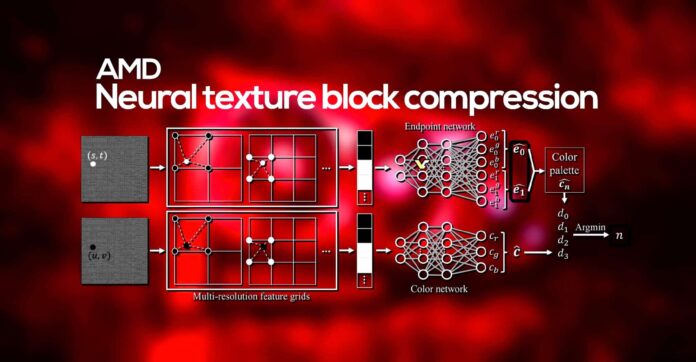Call of Duty and other huge games could be significantly smaller to download in the future
Two, three or four hours: Game downloads take several hours, depending on the internet connection and the game. So it can happen that you spontaneously buy a game on sale in the evening and can’t even play it that same evening. This is frustrating.
But AMD has now introduced a technology that is designed to combat enormous downloads
Less GB when downloading games
In detail: AMD has announced its own “Neural Texture Block Compression” on the social media platform X, which will be presented in more detail at the Eurographics Symposium on Rendering 2024 (EGSR) from July 3 to 5 in London.
How does the technology work? AMD wants to reduce your downloads by automatically compressing textures when you download a game. And how could it be otherwise? Of course, this is made possible by a neural network, popularly known as AI.
We’ll present “Neural Texture Block Compression” @ EGSR2024 in London.
Nobody likes downloading huge game packages. Our method compresses the texture using a neural network, reducing data size.
Unchanged runtime execution allows easy game integration. https://t.co/gvj1D8bfBf pic.twitter.com/XglpPkdI8D
– AMD GPUOpen (@GPUOpen) June 25, 2024
Particularly interesting: This method should be possible without changes to the runtime. This has several implications:
- Easier integration: Game developers do not have to make any changes to the way the game processes or displays textures at runtime. The compression takes place before the game is executed, so that normal game execution is not affected.
- Compatibility: The technology can be applied to existing games without the need to change the game’s source code. This facilitates the introduction of the technology for a wide range of games.
- Performance: The compression of the textures reduces the size of the required data, which requires less memory and possibly less VRAM. Nevertheless, the runtime performance of the game remains the same, which means that players should not experience any deterioration in image quality or performance.
The company has not announced when AMD will release its Neural Texture Block Compression. Exact information will only be available during the presentation at the EGSR.
Until then, we will probably still have to download the full 150 to 300 gigabytes that some games demand from our SSDs.


